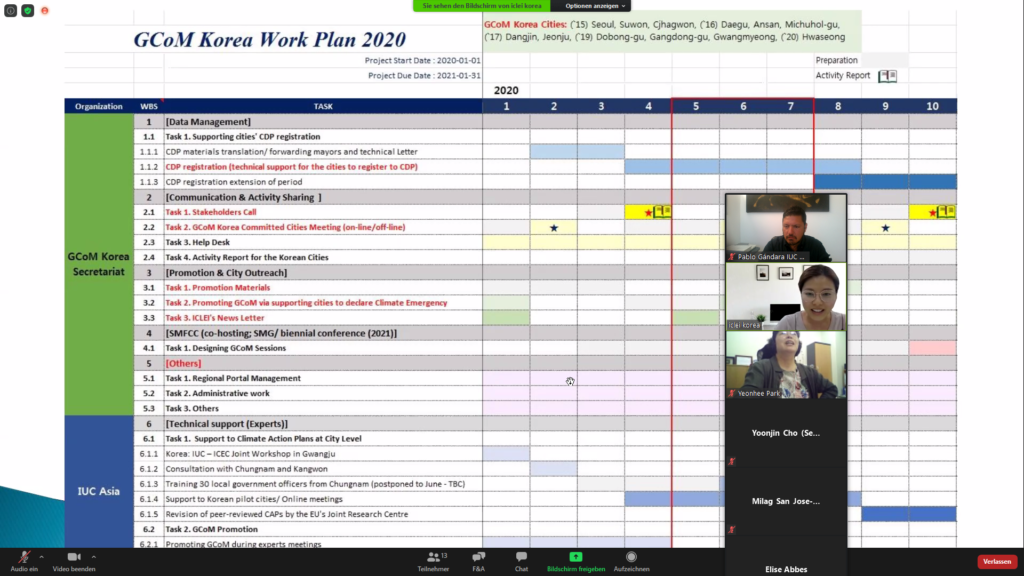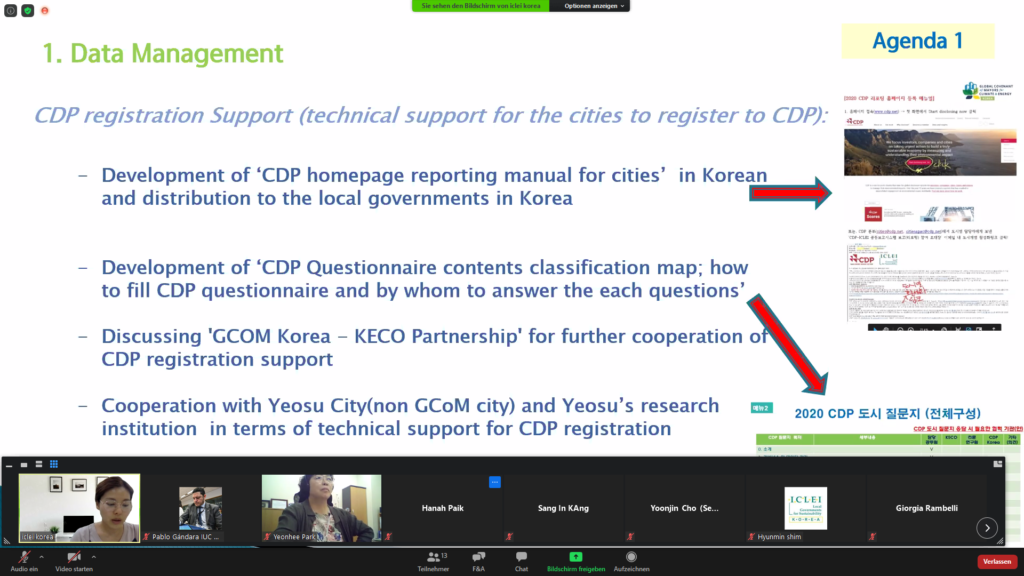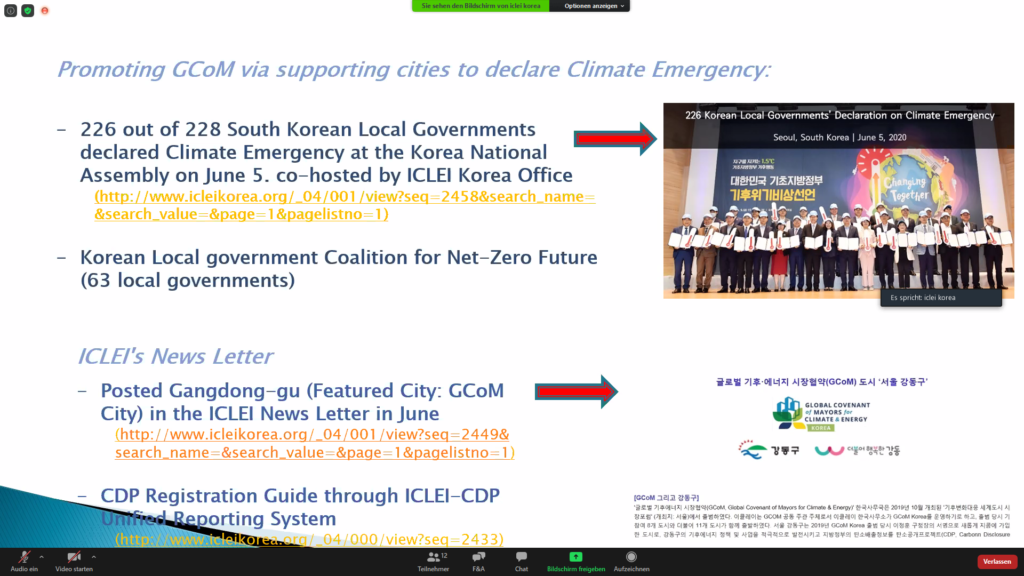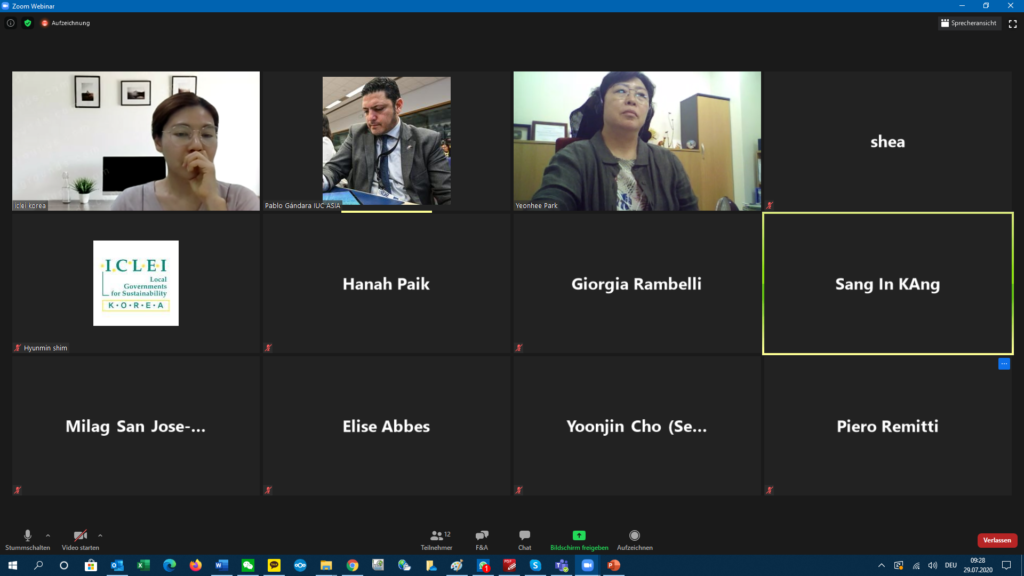The IUC Asia project team participated today in this year’s second online stakeholders’ meeting for the Global Covenant of Mayors (GCoM) in Korea. The event was attended by 12 participants representing the country’s GCoM Secretariat, the Brussels-based GCoM Secretariat, the IUC project as well as GCoM partners from ICLEI, CDP, C40, CityNet, and the Seoul Metropolitan Government (SMG). The meeting provided an opportunity for partners to share their latest relevant activities and to align the work plan 2020. Besides, the GCoM Korea secretariat steered a discussion about the common reporting framework as a benefit for cities. Ms. Eunyoung Seo also emphasised the need to have a broad set of best practices from GCoM and CDP cities worldwide that can inspire Korean local policymakers.
The IUC team, represented by the country coordinator Dr. Sang In Kang and the team leader Mr. Pablo Gándara, presented an update of activities implemented since April 2020, focusing on small-circle meetings with Seocheon County in Chungnam Province. Dr. Kang explained that during the workshop with local officers and experts, the experts’ team found that the mitigation potential of local municipalities is quite limited and dispersed across very much heterogeneous projects and programmes. This is due to the large share of emission sources that are already under the control of the national carbon management system through TMS and ETS. Also, each local municipality has quite different socio-economic and environmental emission sources. They need to identify their own tailor-made solution to manage the emission sources under their authority.
Dr. Kang mentioned that the attention to climate change resilience among citizens and stakeholders is rapidly increasing. Public and private sectors feel more pressure from the public for the implementation of the local action agenda. On 5. June 2020, there was a Mayors’ Declaration of Climate Emergency Actions, which mobilised 226 mayors and heads of districts. Still, local mitigation planning is not mandatory yet and the local action depends highly on the willingness of mayors or governors elected. Local officers have many difficulties to assure the budget and resources to follow-up on local action projects. The support from the central government asks in most cases the matching financial resources from the local budget, which is not always affordable.
Impressions









